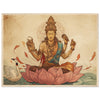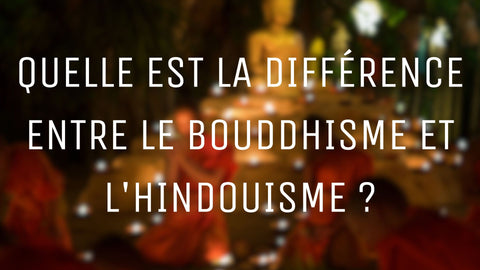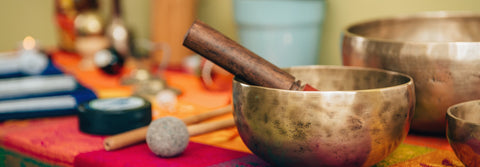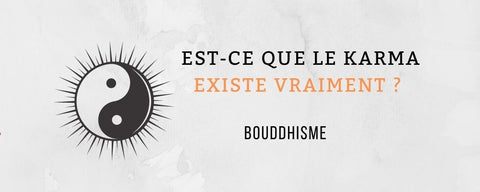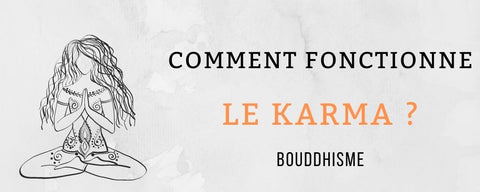
Buddhist prayer in French
of reading
Buddhists like all other believers have a specific way to make their prayers. Prayer is an integral part of their lives but does not follow a strict rule.
This aspect of Buddhism being little known in the world, it takes a little clarification. Find out about Buddhist prayers in French.
How do Buddhists pray?
Buddhists have two methods of prayer. The first method is to adopt a sitting position by having both joined hands before starting the different stages of prayer. The second method of prayer consists in reciting a number of mantras using Mala.

Prayer in a sitting position with both hands joined
For the first method of prayers, Buddhists pray in four ways each that complement each other. Before each prayer, you have to prepare physically and spiritually.
The preparation
For the prayer of Buddhists, these must prepare for the prerequisite and in a convenient way. They must adopt a posture in which they feel comfortable.
They must also have a regular breathing and be concentrated. Buddhists, before prayer, should think of anything other than the latter. They must only develop positive thoughts.
For better concentration, Buddhists use perfumes and candles. The prayer of Buddhists requires publicizing preliminary things like mantras.

Learn some mantras
The success of the Buddhist prayer asks that we know some fundamental mantras. Indeed, a mantra is a short sentence that we repeat continuously.
This sentence does not require that one knows its real meaning. Do not know your meaning makes it possible to better focus on prayer. During your prayer here are the few mantras you need to recite:
- OM Mani Padme Hum
- O Amideva HRI
- Om a ra pa ca na dhih
OM Mani Padme Hum Pronounces as follows "Om mailed Padmé Houm" and means "tribute to the jewel of the lotus".
O Amideva HRI pronounced as "omi friend-dehva re" which means "going beyond all obstacles"
Om a ra pa ca na dhih, as for the latter, it is a mantra in the form of a song that allows the person who recites him to acquire wisdom and to lead a critical reasoning. By singing, we must especially accentuate the sound on the dhih.
There are many songs that can be used. For these songs, simply listen to them correctly in audio recordings.

Say a simple prayer to celebrate the three jewels
Buddhist prayer must be simple and accurate. It can be recited several times as a mantra. In the prayer addressed to Gouda it will be necessary to use the two expressions that follow just after Buddha:
- The Sangha
- Dharma
the sangle translates into a community, group or assembly. It usually refers to all those who believe in Buddhist values.
the dharma By cons refresses the common universal truth to all humanity. It is the common force of all beings who unite the universe. In prayer you can send a prayer for your loved ones.
Prayer for the happiness of the family and friends
By this prayer Buddhists express their gratitude over all that surrounds them.
Appendre meditation prayer metta
The Meditation prayer inspired by the principles of Buddhism. The constant repetition of this prayer helps to find peace of mind. Traditional sentences metta meditation cover four areas:
- The security of the physical body;
- The mental happiness;
- Physical health:
- Peace and well-being
We emerge as the second method of Buddhist prayer.

Prayer with mala
Learn the use of mala
The mala is a Tibetan rosary helps to count prayers or mantras. The total number of these pearls do not determine the number of mantras that one should recite. Also called rosary, the rosary is a devotional object used to count prayers.
This does not affect your spirituality, instead it will help you perform your rituals safely. Prayer with the mala has several advantages including:
- to count with beads stimulate prayer;
- have the opportunity to recite the mantras you desire with Grain mala;
- It is available online mala, in Buddhist temples or in specialized shops.
The mala is used in a specific way, so you know its composition to use it.
TO Read also: the Buddhist prayer before eating

The composition of mala
Tibetan mala 108 generally comprises grains or beads. This includes over a larger head ball than others. Indeed, a round the mala is 100 mantras and 8 balls are there to fill any errors during the recitation. The ball head is called the guru bead and acts as a mentor for recitation.
Each grain mala, it must be said a prayer. The prayer begins with the head of pearl is one that ends up on top. The prayer is said on each grain completely, then goes to the next grain and so on. The mala can be put in any hand when you do not lose the thread of his recitation.
The guru bead should not be skipped during the recitation. Respect the guru bead during prayer shows the desire not to trample your guru.
Why Buddhists-they pray?
Before praying, Buddhists should know in their conscience why they want to do.
They pray first for their own good. Relatively, they pray to realize their capabilities and the ultimate level to obtain enlightenment. They also pray for the accomplishment relative and ultimate of all beings.
Buddhists pray also to deepen their spirituality. There is no binding rule to practice Buddhism.
Read also: What is the sacred book of Buddhism

The different types of Buddhist prayer
Buddhists are several kinds of prayers are:
- The refuge prayers and generating the mind of enlightenment
- The prayers to the lineage of all the accomplished masters
- The specific prayers to the meditation Ydams
- The desire to prayers
- The dedication of prayers for their beneficial activity to property of all creatures without exception
Buddhists have and their own meaning of prayer.

Meaning prayer for Buddhists
In the Buddhism Theravada or Zen Buddhism, the monks do not pray because for them prayer does not make sense because of the impersonality of beings. It is a devotion that is reserved for the people. For the Buddhism Theravada, we must not believe the effects of prayer. Believing the effects of prayer represents obstacles to achieving awakening.
Notices are not shared in Tibetan Buddhism. The latter argue that prayer is an accompaniment of practices such as meditation or Buddhist teachings. The prayer at home is sung or spoken and makes it possible to have good intention, an intention filled with peace to achieve the awakening.
Other aspects of prayer at Buddhists is that they pray before a meal to thank the Buddhas and the circumstances of having to eat. They also pray before sleeping to enter communion with their minds and soothe their souls.
Buddhists execute their prayer in temples reserved for this purpose.


